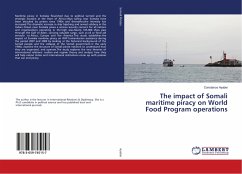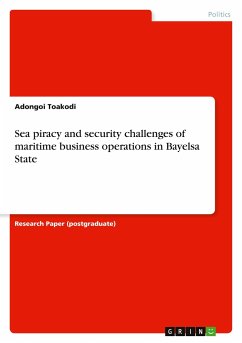Maritime piracy in Somalia flourished due to political turmoil and the strategic location at the Horn of Africa.Ships sailing near Somalia have been attacked by pirates since 1990s and thereafter,the intensity has increased.The dramatic increase in ship hijacking and armed robbery in the Indian Ocean near Somalia poses a serious security concern for all nations and organizations operating in the high seas.Nearly 165,000 ships pass through the Gulf of Aden, carrying valuable cargo, such as oil or food aid enroute to Africa, Europe and the America.This study establishes the impact of Somalia maritime piracy on WFP humanitarian assistance during the period 2007 and 2009 by looking at the historical background of the Somali people and the collapse of the Somali government in the early 1990s, examine the structure of Somali pirate network to understand how they are organized, and operate.The study explores the two theories of international relations: realism and regime theory and analyze how they will help nation states and international institutions come up with policies that can end piracy.








